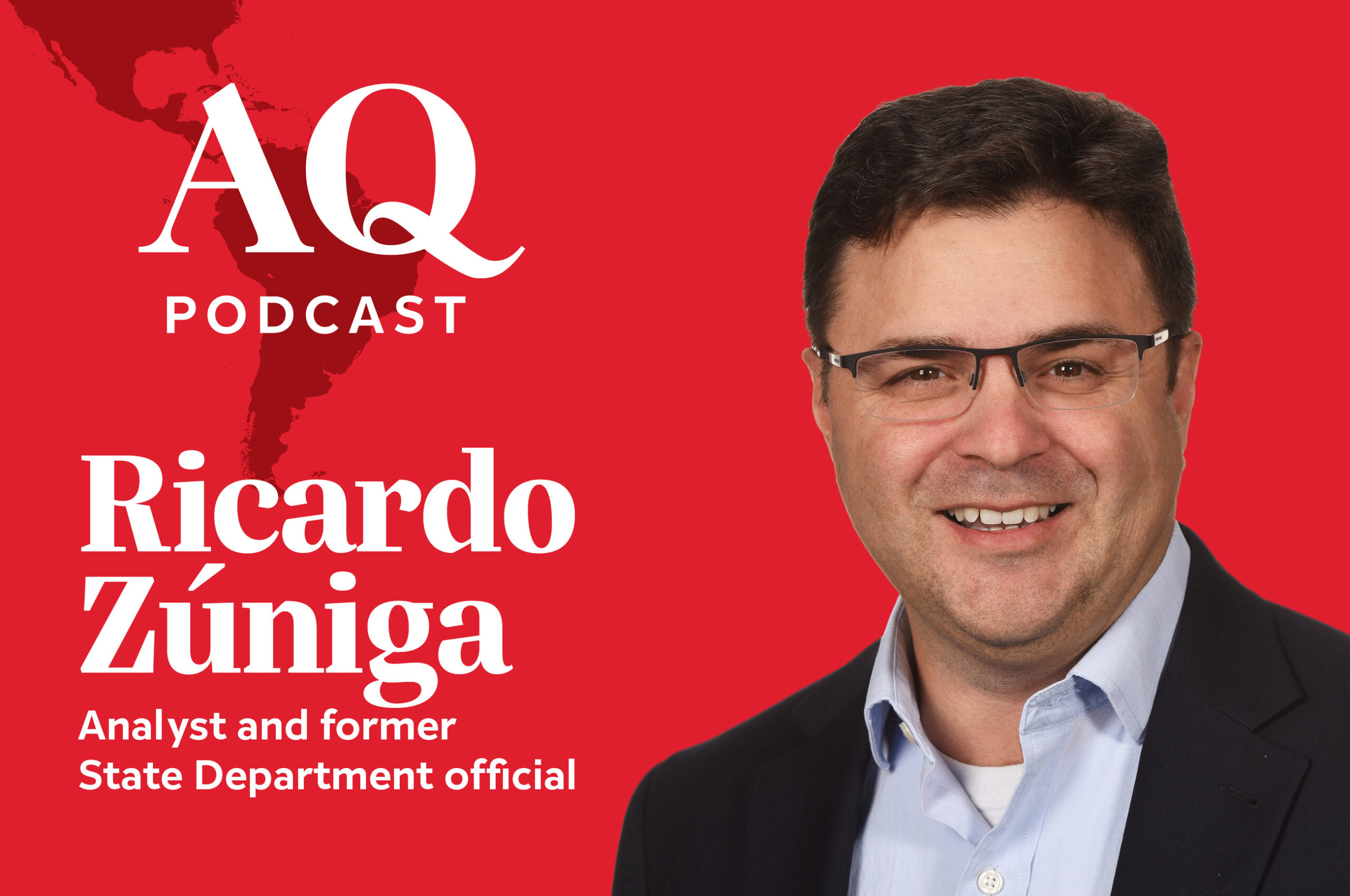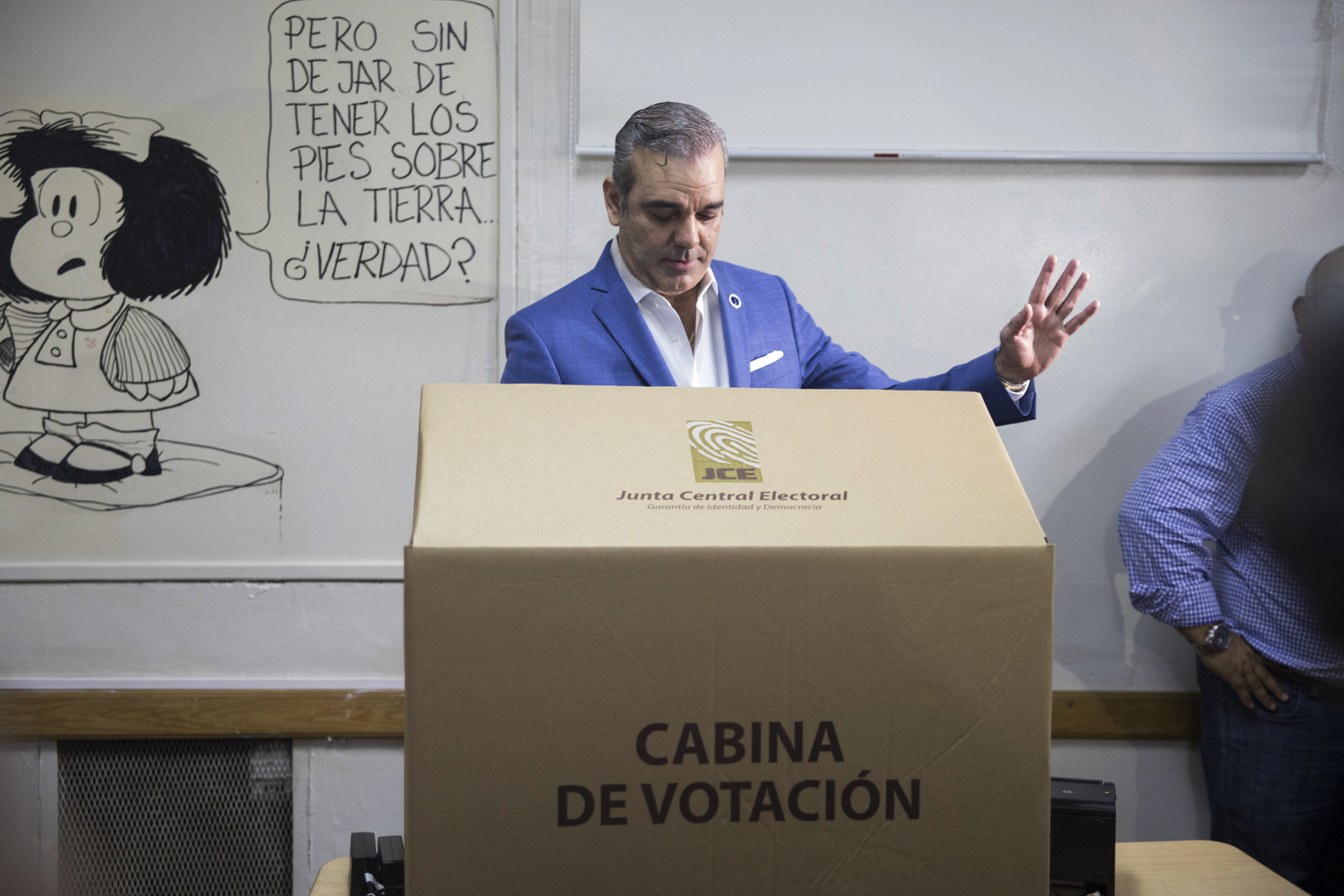Venezuela Referendum: Public Opinion, Economic Impact, and Implications
Venezuela Referendum: Public Opinion, Economic Impact, and Implications
On February 9, AS/COA organized a public panel to look at the February 15, 2009, referendum in Venezuela that abolished term limits for all elected officials. The discussion focused on public opinion trends ahead of the upcoming vote, economic implications, and the legitimacy of the referendum.
On February 9, 2009, the Americas Society and Council of the Americas organized a public panel to look at the February 15, 2009, referendum in Venezuela that abolished term limits for all elected officials. The discussion focused on public opinion trends ahead of the upcoming vote, economic implications, and the legitimacy of the referendum.
Panelists:
- Luis Vicente León, Director, Datanalisis
- Allan Brewer Carías, Adjunct Professor, Columbia Law School
- Alejandro Grisanti, Senior Economist for the Andean Region, Barclays Capital
- Christopher Sabatini, Senior Director of Policy, AS/COA and Editor-in-chief, Americas Quarterly (Moderator)
The top political priority
Panelists agreed that the upcoming referendum is President Chávez’s main political priority. In fact, for both the government and the opposition it is clear that Chávez wants to remain in power, according to Luis Vicente León. He further noted that Chávez wants to “consolidate his revolution” through electoral results in order to create a legitimate presidency. To intensify and win the campaign, the President has radicalized his message, which has actually translated into lowered approval ratings but an increase in support among his constituency. However, despite loosing some of his base, support for passage of the referendum has increased. The latest Datanalisis numbers show 51 percent supporting the amendment, with 48 percent of the population against it. León indicated that the narrow difference makes it statistically impossible to project a winner. The deciding factor in the referendum will hinge on which side is able to better mobilize its constituency.
A politicized economic policy
Another important issue continues to be the country’s economic policies, especially in light of the referendum and global economic downturn. With the referendum around the corner, the government has postponed any economic policy adjustments that may be necessary to reflect the drop in oil prices. According to Alejandro Grisanti, President Chávez is especially reluctant to make any spending cuts or debt payment adjustments for fear that such decisions could impact his ability to win the referendum. For now, Chávez is suggesting that Venezuela is not vulnerable to oil market fluctuations, even suggesting that prices could “go down to zero and still Venezuela won’t suffer,” according to Grisanti. But, in fact, the government has lost about $60 billion in oil revenue and will be forced to make budgetary adjustments. Both Luis Vicente León and Alejandro Grisanti agreed that the President would face an uphill battle in winning the referendum if it was forced to make tough economic decisions beforehand. But eventually, Grisanti signaled that some economic adjustments would be necessary such as restoring a financial transactions tax, increasing the value-added tax rates, or devaluing the Bolivar.
Legitimacy of the referendum
A final theme of the discussion was the extent to which the referendum, which, if passed, would amend the constitution, was in fact legitimate. For Allan Brewer, a popular vote did not guarantee its constitutionality. He agreed with León that Chávez is not looking to perpetuate himself in power but rather aims to win continuous elections. However, Brewer argued that a clause existed in all of the country’s constitutions to prohibit the continuous reelection of an elected official. The constitutions of the two authoritarian regimes—Juan Vicente Gómez (1908-1935) and Marcos Pérez Jiménez (1952-1958)—are the only exceptions. The continuation of power—a fundamental principle of a constitution—is only suitable to change through a national constituency, according to Brewer. He concluded by reminding the audience that the proposed amendment was actually included as part of the 2007 constitutional reform. The Venezuelan constitution explicitly prohibits proposing a reform to the same constitutional article more than once during a presidential term.







